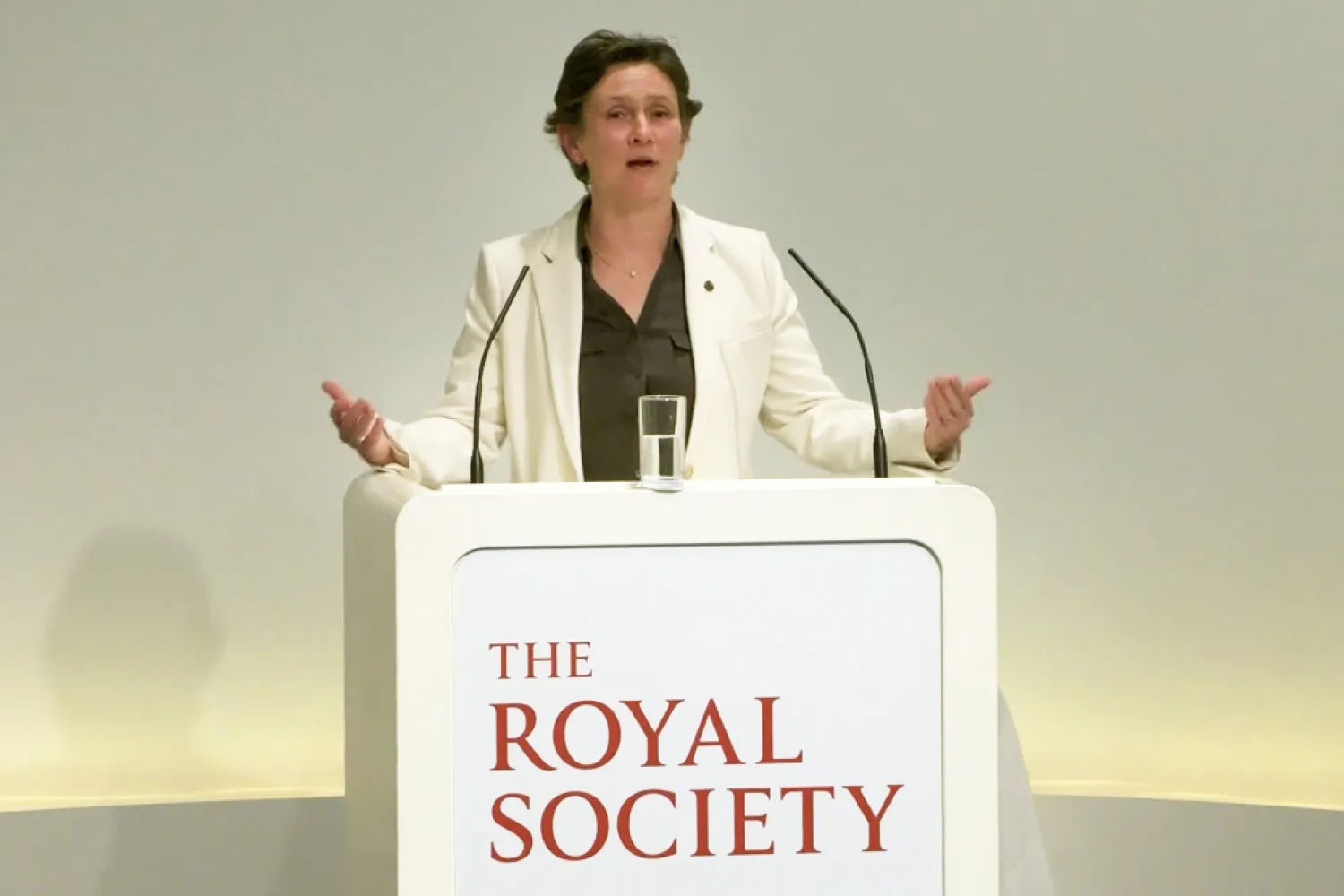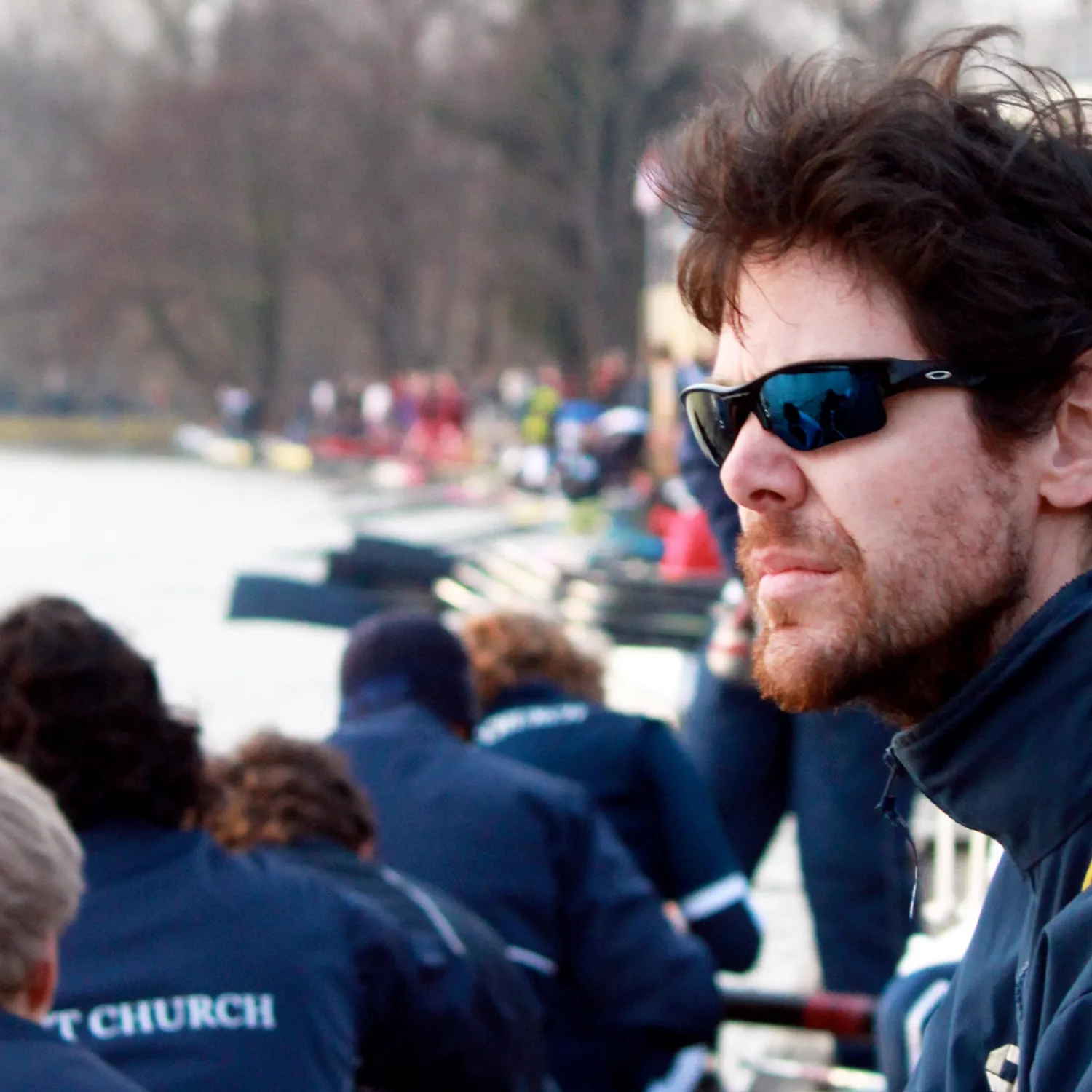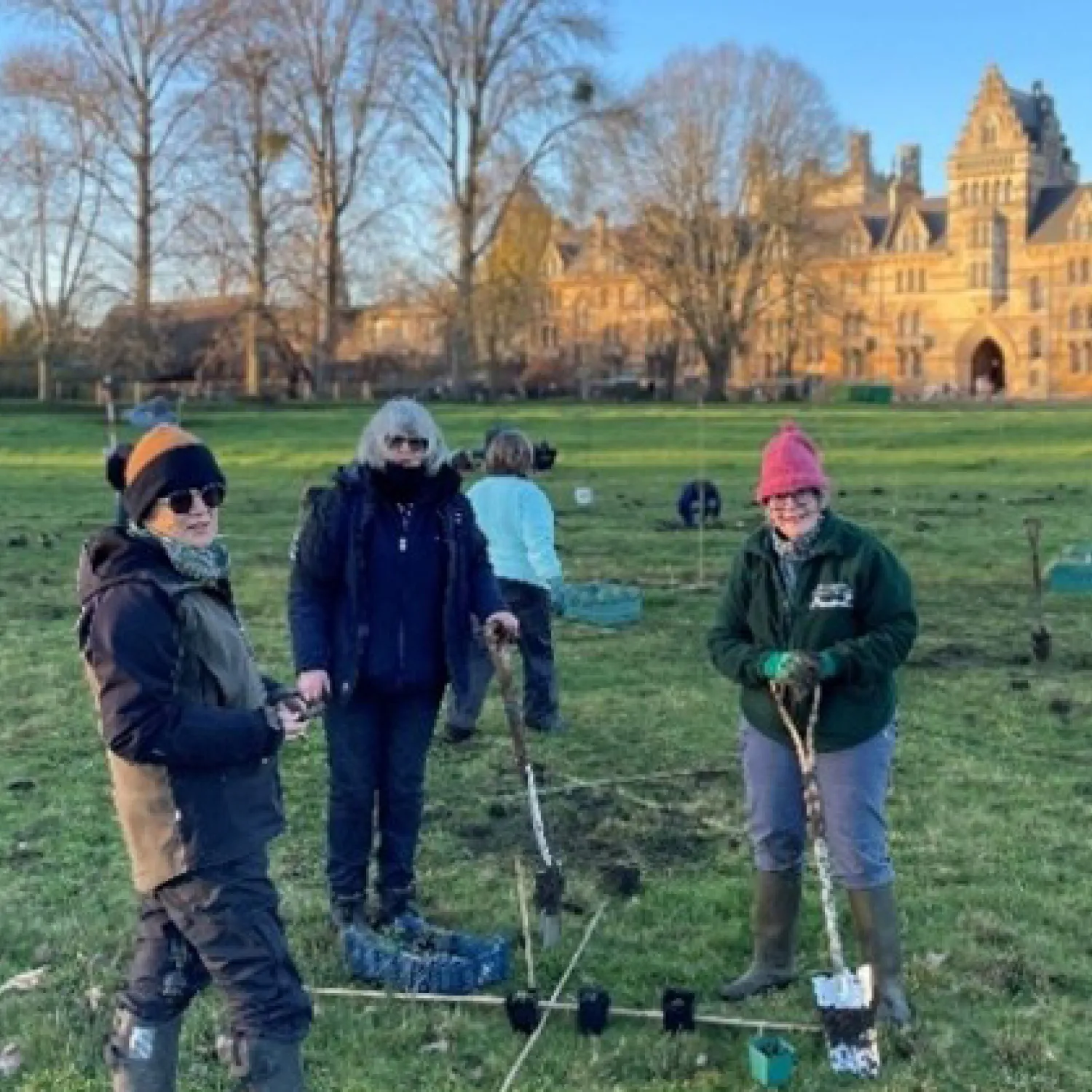Breadcrumb
Oxford head launches 500th Anniversary Lectures at the Royal Society
On Thursday 8 May, Professor Irene Tracey CBE FRS FRCA FMedSci MAE, Vice-Chancellor of the University of Oxford and an Honorary Student of Christ Church, delivered a speech to London’s Royal Society entitled ‘The Critical Role of Higher Education in Shaping Tomorrow’s World’. The first in a series of lectures taking place across the globe to mark the 500th Anniversary of the founding of Christ Church, Professor Tracey began the presentation with a question: ‘What does the next 500 years look like?’
In a wide-ranging discussion addressed to current and past Members of Christ Church and the wider University, as well as interested members of the public, Professor Tracey took stock of the challenges facing the UK’s universities today and spoke of the opportunities that must be seized in order to overcome them.
The Vice-Chancellor set out how, in an embattled higher education sector, the University of Oxford continues to flourish against the odds. Oxford is financially resilient, she said, and remains ‘number one’ among UK universities in no small part because of its agility and commitment to research and innovation. Despite appearances, Oxford ‘is one of the most innovative, changing places you could imagine’. This is a theme Professor Tracey returned to later in her speech, praising the recent launch by Christ Church of Oxford Edge – a centre for entrepreneurship and innovation at the heart of the city.
While Oxford may be able to brave the financial headwinds facing the sector, the same cannot be said of many other institutions. Professor Tracey painted a bleak picture in which more than 20,000 academic redundancies are expected in the next year and many universities are at risk of going under. Central to the Vice-Chancellor’s speech was the question of how our world-leading universities can be placed on a sure footing.
Do not underestimate the soft diplomacy or the soft power that our international students play in the world.
Do not underestimate the soft diplomacy or the soft power that our international students play in the world.
At present, many of the financial woes of British universities can be attributed in part to an overreliance on fees drawn from international students. Professor Tracey critiqued the rhetoric of current and former governments regarding international students, which, she claimed, has precipitated a drop in the number of those deciding to study in the UK. She repeated a warning she had issued to the Home Office: ‘Do not underestimate the soft diplomacy or the soft power that our international students play in the world.’ Oxford, she pointed out, produces more world leaders than any other university, and more broadly UK universities have educated one-quarter of today’s world leaders.
While making the case for welcoming international students and researchers, who ‘bring extraordinary cultural benefits to our British students and to us as faculty teaching them’, Professor Tracey stressed that the current state of affairs cannot continue. A first step towards fixing the sector, she claimed, was making a better case for proper investment in research, research-intensive institutions and universities by government and industry. We must become better at articulating the value of our higher education sector to those who are disconnected from it, setting out its role in delivering jobs, growth and global leadership. We must take hold of the narrative around British universities.
Professor Tracey set out the positive story that our universities fail to tell. She spoke of how universities can spread opportunity across the country, drawing on the case of Christ Church’s decade of work with IntoUniversity in one of Oxford’s most deprived boroughs. Through schemes like this, British universities can raise aspirations and broaden the horizons of our young people.
The Vice-Chancellor set out the remarkable impact that the University of Oxford’s research has made worldwide in recent years. It is because of the Oxford’s unwavering commitment to and investment in research that it was able to become the only university in the world to produce a vaccine for COVID-19, and why it was able to deliver a groundbreaking vaccine for malaria just last year. When you invest properly in research, Professor Tracey pointed out, you can pivot. In the case of the Oxford–Astra Zeneca vaccine, our researchers – led by Christ Church’s Professor Sarah Gilbert, who will deliver the second Christ Church 500th Anniversary Lecture – pivoted to development and delivery in an exceptionally short time. That vaccine, which continues to be the most distributed in the world, is thought to have saved more than six million lives. New economic research completed by the University estimates that several trillion pounds were saved in the global economy through Oxford’s COVID vaccines. ‘That’s the power a research-intensive university can have,’ Professor Tracey said. ‘We don’t tell that story enough.’
Professor Tracey’s full address can be viewed below.
The next instalment of the 500th Anniversary Lecture series takes place in Oxford on 25 June. Attendees will have a rare opportunity to hear from Christ Church Senior Associate Research Fellow Professor Dame Sarah Gilbert DBE FRS as she speaks on the subject of pandemic preparedness. Book your place here.
On 11 September, in Manchester, the speaker will be the Former Archbishop of Canterbury The Right Revd Rowan Williams.
On 25 September, in New York (USA), the speaker will be Richard Stengel, former Under Secretary of State for Public Diplomacy and Public Affairs in the Obama administration and former Managing Editor of TIME magazine.
Our final lecture on 8 November will take place in Berlin (Germany), and will be delivered by Dr Jerome Booth, British economist, author and former Chair of Anglia Ruskin University.
Other Christ Church news




